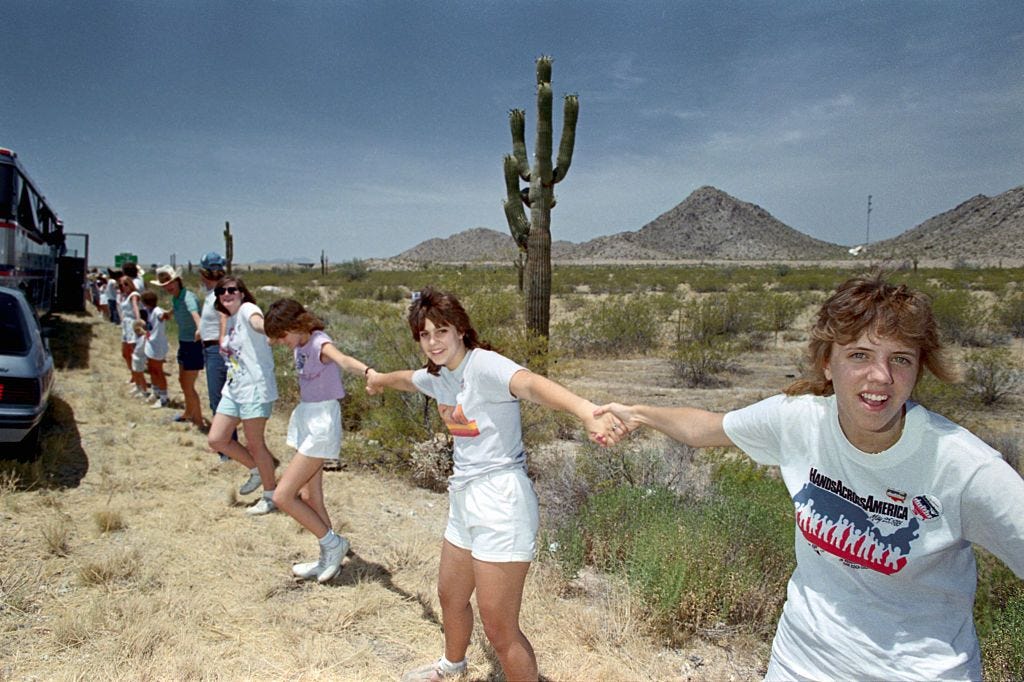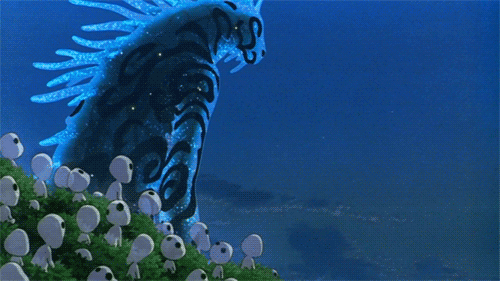The shape of network society
I was having a drink with my buddy Robinson Eaton recently, and he dropped this interesting provocation: “I’m a McLuhan absolutist now.”
McLuhan absolutist, as in Marshall McLuhan, as in the medium is the message. And the more I think about it, the more I think he’s right. More than any other lens, McLuhan is the key to understanding our present moment.
So what is McLuhan absolutism? If you’re like me, you’ve probably heard the medium is the message, and thought to yourself “Got it. Media influences culture”.
No. It’s not that media influences culture. The medium is the culture.
Medium, as in Petri dish. Medium, as in the thing in which the culture grows.

All media work us over completely. They are so pervasive in their personal, political, economic, aesthetic, psychological, moral, ethical, and social consequences that they leave no part of us untouched, unaffected, unaltered.
(Marshall McLuhan, 1967. The Medium is the Massage)
Without a medium, there is no culture.
Without language, there is no recitation of genealogies, so there are no tribes.
Without writing, there is no accounting, so there are no empires.
Without print, there are no novels exploring the depth and diversity of subjective experience, so there is no individualism.
Without broadcast, there is no mass transmission of ideas, so there is no mass society.
Language creates tribes, writing creates empires, print creates individualism, broadcast creates masses.
What does the network create? What would McLuhan absolutism predict?
What is the shape of network society? Let’s trace the outline, and begin to form an intuition.
First, what media defined the last four cultures?
Oral: folklore
Literary: books
Broadcast: TV, radio
Network: social media, AI
The medium is the message because the medium is the thing through which the message flows. So how does information flow through these media?
Oral: circular
Literary: sequential
Broadcast: one-to-many
Network: many-to-many
Since the behavior of a system is determined by the structure of its flows, media determine the behavior of the system. Broadcasting radiates in every direction, generating normal distribution curves. Networks, on the other hand, receive, repeat and amplify, creating traffic spikes, cascading failures, runaway viral memes. Networks generate exponentials.
Broadcast: normal distributions
Network: exponential distributions
These exponentials are fractal, displaying power laws at every level. Networks are highly unequal. At the same time, networks are fluid, so the balance of power is constantly shifting. Broadcast power tends to be symmetric. Network power is asymmetric.
Broadcast: symmetry
Network: asymmetry
When these asymmetries collide, they produce a stochastic landscape of booms and busts. Network society is volatile.
Broadcast: managed reserves
Network: booms and busts
Many-to-many, exponential, asymmetric, booms and busts… We’re beginning to see the outline of a new set of rules. Let’s keep going…
Coordination
Oral: genealogies
Literary: organized religion
Broadcast: ideologies
Network: algorithms
Cooperation
Oral: traditions
Literary: bureaucracies
Broadcast: standards
Network: protocols
Time-perception
Oral: generational
Literary: historical
Broadcast: scheduled
Network: instant
Memory
Oral: rituals
Literary: archives
Broadcast: recordings
Network: memes
Production
Oral: self-manufactured
Literary: craft-manufactured
Broadcast: mass-manufactured
Network: JIT-manufactured (3D printed, print-on-demand, etc…)
Social currency
Oral: reputation
Literary: credentials
Broadcast: fame
Network: attention
Authority
Oral: elders
Literary: texts
Broadcast: celebrities
Network: algorithms
Truth
Oral: consensus
Literary: facts
Broadcast: experts
Network: virality
Faster now…
Broadcast: centralized
Network: decentralized
Broadcast: efficient
Network: adaptive
Broadcast: standardized
Network: personalized
Broadcast: manufactured consensus
Network: runaway amplification
Broadcast: spectacle
Network: outrage
Broadcast: shared reality
Network: sharded reality
Broadcast: economies of scale
Network: swarms
Broadcast: welfare
Network: gofundme
Broadcast: institutions
Network: groupchats
Broadcast: countries
Network: cities
Broadcast: internationalism
Network: archipelagos
Broadcast: big cold wars
Network: small hot wars
Broadcast: armies
Network: guerillas
Broadcast: prevents damage
Network: routes around damage
Broadcast: coal, dams, nuclear
Network: microgrids, batteries, rooftop solar
Broadcast: climate mitigation
Network: climate adaptation
Some things that don’t exist in a network society: facts, shared truth. Facts don’t exist in oral cultures either. They are a byproduct of literary culture. Books, as an artifact, are permanent, unalterable, and shared, like a fact. They are tablets come down from the mountain.
Social media isn’t like that. Social media has no memory. It lives in the internal instant, amplifying and exaggerating the most salient features of signals.
What does the network amplify?
…and maybe two more: aww and horny. Limbic system stuff.
Networks are constantly adapting, so hardwired instincts are the one stable point in the system. The network forms itself around them. It evolves to take on the distorted shape of our collective psyche, like a funhouse mirror. The deep, instinctual, hardwired emotions are also the easiest ones to rootkit. You’re outraged! Of course you’ll amplify.
So, networks don’t product facts. Instead, they combine the gossip of oral culture with the scale of broadcast culture. Network culture is a hyper-oral culture.
No facts, no shared truth. As a child of literary culture, I do not like this! But whether I like it is beside the point.
World War 3 is a guerrilla information war with no division between military and civilian participation.
(Marshall McLuhan, 1970, Culture Is Our Business)
An absence of facts and shared truth does not imply an inability to coordinate. Ants don’t have shared truth, yet they coordinate. The truth doesn’t live in any one ant. It is embodied in the structure of the network.
To some, the critical test of whether a machine is or is not a ‘brain’ would be whether it can or cannot ‘think.’ But to the biologist the brain is not a thinking machine, it is an acting machine; it gets information and then it does something about it.
(W. Ross Ashby, 1948, Design for a Brain)
Intelligence is a scarce resource in literary culture. Experts, wonks, and researchers act as priests of knowledge.
Broadcast culture centralizes this intelligence, and scales it through mass-mobilization. That’s how it solves problems.

In network culture, intelligence becomes abundant. Thousands of people and AIs and algorithms all interact.
With the arrival of electric technology, man has extended, or set outside himself, a live model of the central nervous system itself.
(McLuhan, 1964. Understanding Media: The Extensions of Man)
It’s no accident that a network society sounds a lot like a neural net. Social media users act just like neurons, relaying messages when our action potential is reached. React, retweet, remember to like and subscribe.
AIs are, themselves, reflections of this network intelligence. LLMs crystalize the intelligence of the network by compressing an internet’s worth of text until the text speaks back. Intelligence becomes software. It can be scaled up and down, on demand, exactly like servers.
A new medium… not only does not wipe out the old, but actually reinforces the older medium or media. However, in doing so it transforms the old, so that the old is no longer what it used to be. Applied to books, this means that in the foreseeable future there will be more books than ever before but that books will no longer be what books used to be.
(Ong, 1977. Orality and Literacy)
So, AI reenforces and transforms intelligence. That means there will be more intelligence than ever before, but intelligence will no longer be what it used to be.
These AIs won’t be experts dispensing wisdom from an ivory tower. That’s literary culture. No, they’ll be wired up to the network, and they will repeat and compete and collide and be herded around by algorithms, just like the rest of us. Any aggregate intelligence will be the result of the emergent behavior of these interactions.
This is a world inhabited by many different agents and emergent network spirits, each with their own personalities and motivations. It’s a re-enchanted world, an animistic world, with no single locus of control.
Surviving in network society will mean learning to think together with our egregores.




